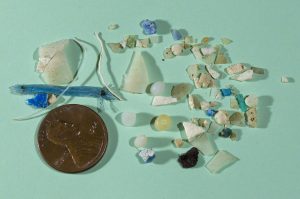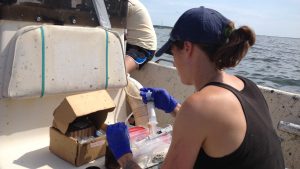Search results for: 9anime GG %E2%9D%A4%EF%B8%8F%EF%B8%8F %E2%9C%94%EF%B8%8F 9Anime.GG %E2%9C%94%EF%B8%8F%E2%9D%A4%EF%B8%8F%EF%B8%8F Watch Anime Online - 9anime GG %E2%9D%A4%EF%B8%8F%EF%B8%8F %E2%9C%94%EF%B8%8F 9Anime.GG %E2%9C%94%EF%B8%8F%E2%9D%A4%EF%B8%8F%EF%B8%8F Watch Anime Online - 9anime GG %E2%9D%A4%EF%B8%8F%EF%B8%8F %E2%9C%94%EF%B8%8F 9Anime.GG %E2%9C%94%EF%B8%8F%E2%9D%A4%EF%B8%8F%EF%B8%8F Watch Anime Online - 9anime GG %E2%9D%A4%EF%B8%8F%EF%B8%8F %E2%9C%94%EF%B8%8F 9Anime.GG %E2%9C%94%EF%B8%8F%E2%9D%A4%EF%B8%8F%EF%B8%8F Watch Anime Online
Study Measures Nitrogen Removal by Shellfish
February 6, 2017 — Towns along Cape Cod and the Islands are looking to shellfish not only as tasty culinary treats, but also for help cleaning up waters degraded by excess nitrogen in the region. While nitrogen is essential for all plants and animals, too much nitrogen in ponds and waterways—often caused by fertilizer runoff…
Read MoreTeacher Workshop: April 17, 2015
Teacher Workshop: April 17, 2015 Seals on Cape Cod, Seals as Sentinels Presenters Dr. Rebecca Gast http://www.whoi.edu/hpb/Site.do?id=585 Dr. Andrea Bogomolni http://www.whoi.edu/profile/abogomolni/ Schedule: 8:45-9:15 Arrive, pick up parking passes, and park in School St. lot, walk to WHOI Exhibit Center Breakfast: pastries, coffee, juice 9:30 – Quick introduction to WHOI, Sea Grant, and Exhibit…
Read MoreMicroplastics in the Marine Environment
In 2020, recognizing the growing problem of marine debris in the environment, Woods Hole Sea Grant funded two new research projects that aim to better understand the sources, transport and uptake of microplastics by certain wild and cultured sea food. “Microplastics have many sources, shapes and sizes in the marine environment yet we know very…
Read MoreSea Grant Two if by Sea Vol. 8 No. 2 A joint n
Sea Grant Two if by Sea Vol. 8 No. 2 A joint n
Read MoreUnderstanding the Waquoit Bay Ecosystem
A Q&A with Sarah Foster Sarah Foster is a Boston University graduate student doing her dissertation research in Waquoit Bay (Cape Cod, Massachusetts). A biogeochemist, Sarah investigates the impact hypoxia, or low oxygen, in the water has on crucial functions within Waquoit Bay’s ecosystem. She recently published research she and her co-author, Wally Fulweiler conducted in…
Read MoreMay 3, 2019 Pollutants Workshop
Impacts of Human-derived Pollutants on the Coastal Environment Presenter: Dr. Chris Reddy, WHOI Marine Chemistry and Geochemistry Department – Using Discarded Shotgun Shells to Study the Fate of Plastics in the Environment Dr. John Stegeman, WHOI Biology Department – How Animals Deal with the Sea of Chemicals Date: May 2019 Lesson…
Read MoreIdentification of Proliferating Cells in Hard Clams
Identification of Proliferating Cells in Hard Clams Hanselmann, R., R. Smolowitz, and D. Gibson Biol. Bull., Vol. 199, pp. 199-200, 2000 WHOI-R-00-005
Read More2000-2002 Projects
Detection and Quantification of Live Acanthamoeba in Natural Marine Ecosystems Using Molecular Genetic Methods Rebecca J. Gast, Woods Hole Oceanographic Institution Acanthamoeba is a genus of free-living amoebae present in soil, saltwater, and freshwater, including tap water. Although Acanthamoeba does not appear to be a human health threat in the ocean, very little is known…
Read MoreDiseases, Pests, and Predators of Concern to New England Shellfish Growers
Diseases, Pests, and Predators of Concern to New England Shellfish Growers Walton, W. brochures, 2005 WHOI-H-05-002, 003, and 004 Also available as PDF files by clicking on the topic of interest: diseases, pests, predators If you are a shellfish grower, harvester, or resource manager, you are well aware that diseases, pests, and predators are issues…
Read More1994-1996 Projects
Development of Laboratory and Field-Based Techniques for the Detection of Illegally Altered Lobsters Robert A. Bullis and Roxanna M. Smolowitz, Laboratory for Marine Animal Health, University of Pennsylvania at Marine Biological Laboratory, Woods Hole The illegal practice of dipping female, “berried” lobsters in chlorine to remove their eggs has, according to recent reports, become increasingly…
Read More

